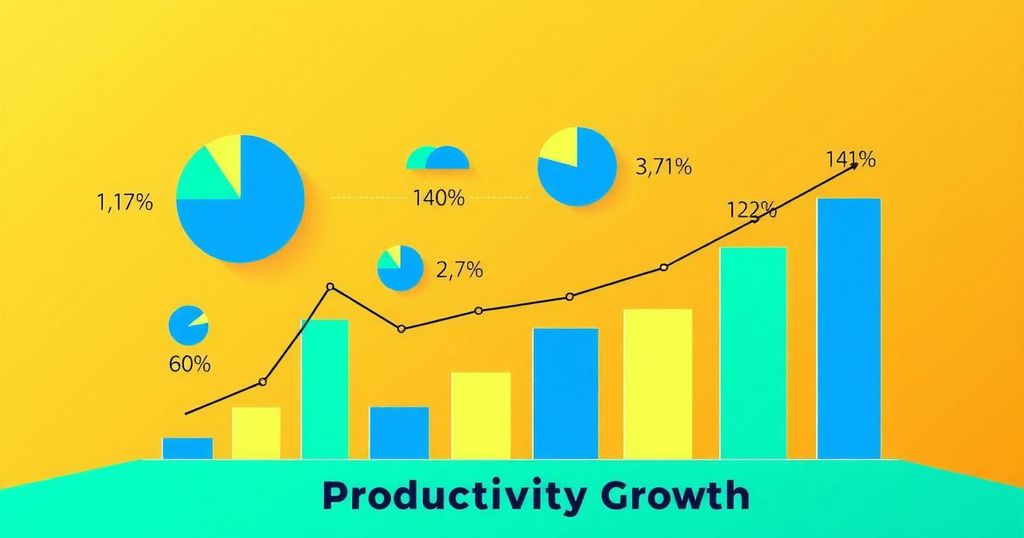Nigeria recorded its fastest productivity growth in 14 months in February 2025, with the PMI rising to 53.7. This growth highlights an overall improvement in private sector conditions, marked by increases in output, new orders, and a modest reduction in inflation. The report suggests a positive outlook for the economy, driven by stable exchange rates and moderated fuel prices.
In February 2025, Nigeria experienced its most significant productivity growth since January 2024, with the Purchasing Manager’s Index (PMI) rising to 53.7 from the previous 52.0. This growth indicates an overall improvement in business conditions within the private sector, marking a notable monthly enhancement in activity levels. It is worth noting that growth has been recorded for three consecutive months, illustrating an expanding economic momentum.
The PMI report showcases enhanced growth in output, new orders, and increased purchasing activity alongside a reduction in inflationary pressures. This uptick in demand has led Nigerian companies to boost their production levels for the third month in a row. All four sectors monitored—agriculture, manufacturing, services, and wholesale and retail—reported activity increases, although the rise in wholesale and retail was modest.
The report further highlights a significant rise in new orders, the steepest in more than a year, suggesting increased customer commitment to new projects. While overall input costs rose, they did so at the slowest pace in ten months. Nevertheless, the inflation rate remains high, mainly due to increased raw material and staffing costs.
Mr. Muyiwa Oni, Head of Equity Research West Africa at Stanbic IBTC Bank, stated that the growth of the private sector is attributed to a stable exchange rate and moderated fuel prices, contributing to reduced inflation and enhanced consumer demand. He noted that new orders have continued to rise for four months, which has consequently led to an increase in overall output.
In terms of overall economic performance, Nigeria’s real GDP growth reached 3.84% year-on-year in Q4:24, a rise from 3.46% in Q3:24, marking the highest growth since Q4:21. Notably, services contributed 79% to GDP growth, followed by agriculture with 11.9% and industries contributing the remaining 9%.
Looking ahead, Oni indicated a positive outlook for Nigeria’s non-oil sector in 2025, anticipating improvements driven by stable foreign exchange and better liquidity, which are expected to bolster various sectors such as manufacturing and real estate, coupled with lower borrowing costs supporting growth.
In conclusion, Nigeria’s productivity growth in February 2025, as indicated by a PMI increase to 53.7, signifies strong economic improvement within the private sector. The sustained growth across monitored sectors, alongside rising new orders and diminishing inflationary pressures, reflects a robust recovery trajectory. With favorable economic conditions forecasted for 2025, particularly in the non-oil sector, the Nigerian economy is positioned for continued advancement.
Original Source: www.thisdaylive.com






